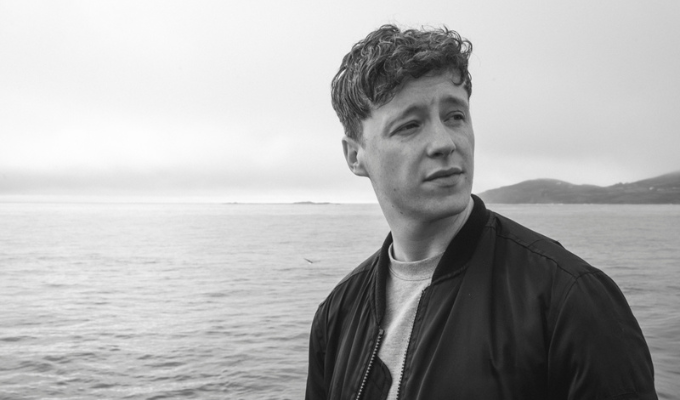
Shaun Dunne is a Dublin based film and theatre artist who
specialises in the blurring of testimony with new writing. Works of note
include the recent IFTA nominated How to
tell a Secret, Rapids, Making a Mark
and Death of the Tradesmen. He is a multi-award winning director and writer
who has received several bursaries and grants from the Arts Council including
the Next Generation Film Award. Up next, he will present a documentary theatre
hybrid called This Solution at Dublin
Theatre Festival.
What did you do with your Bursary award?
My bursary was spent developing new collaborative methodologies with composers and music makers. I wondered how my documentary practice and material could be better theatricalised through more meaningful collaboration with musicians and songwriters.
What has receiving a Bursary award meant to you as an artist/for your career?
The bursary grants a path towards informal study and up-skilling. It allows me to develop new collaboration and partnerships outside of the pressure of an initial run. Without bursaries, we would become trapped in the production model, we would be lost for opportunities to develop and play.
How would you describe your creative process?
My process is quite collaborative and is becoming increasingly more and more collaborative as I develop in my practice. I spend a lot of time with my interview material, with my contributors of course, but I am getting better at involving my collaborating artists from the start. This means I am less isolated and writerly, and thinking in a broader context all the time. Of course, the text is still a huge part of the process, but I am becoming less cosmetically fixated on it. I try to create a band mentality as much as I can. I do this by sharing testimony, concept briefs, playing recordings, having conversations in the round. I am becoming more expectant that we should all be plugging in and engaging with the material together, riffing off each other and developing as we go. Working in isolation and bringing in your wears in drip feed style doesn’t always create the most meaningful experience for an artist. That doesn’t mean I don’t lead or drive the project towards a direction, it’s more just that I now try to be less controlled from the very beginning.
What is the best piece of advice you received as an emerging artist?
To be honest, I’m asking for advice all the time. If anyone has any advice for me, I’d be happy to hear it! Making art is hard. A career in the arts is harder. Be serious about what you do, but don’t take yourself too seriously is good advice for anybody.
What or who has influenced your practice the most?
My contributors are of course my biggest influence. At the core of my work is their lived experience. Artistically, I’m inspired by artists with a strong visual aesthetic. I love the formal precision of Annabelle Comyn’s direction. The intense imagery found in a Brokentalkers’ show. I love the playful exuberance of a Malaprop piece. I think Junk Ensemble always have amazing concepts in their work and you can see the graft and deep wisdom in what they do. Generally, I’m probably most inspired by music – hence this bursary application and recent collaborations with Robbie Kitt, Alma Kelliher and One Two One Two. Music really opens me up creatively and energises my writing.